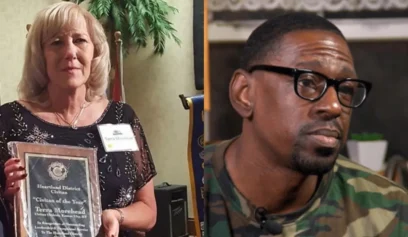South Africa’s influential former president Thabo Mbeki, who succeeded Nelson Mandela as the leader of South Africa, gave a rare speech in which he voiced his concern that his country is “losing its sense of direction.”
Mbeki, who has chosen to remain largely silent over the last four years, didn’t mention current President Jacob Zuma by name, but his remarks were interpreted as a rebuke of Zuma’s leadership.
Just last week, Zuma proposed a $97 billion building program for South Africa as a way to move the economy away from the devastating strikes that have hammered the mining industry after the Marikana massacre killed 34 strikers in August. Since August, the South African rand has fallen 5 percent against the dollar and, because of fallen mine production and lessened demand from Europe, South Africa’s biggest trading partner, economic growth is expected to reach just 2.6 percent this year, according to the central bank—too low to impact an official unemployment rate of nearly 25 percent. Significantly, all the labor unrest has hammered South Africa’s carefully cultivated image as the best place for foreigners to invest in Africa.
Mbeki was forced from office in 2008 when the ruling party chose Zuma to lead the nation. In a lecture at Fort Hare university in Eastern Cape province, Mbeki, 70, said he was “deeply troubled by a feeling of great unease that our beloved motherland is losing its sense of direction, and that we are allowing ourselves to progress towards a costly disaster of a protracted and endemic general crisis.”
“I, for one, am not certain about where our country and nation will be tomorrow, and what I should do in this regard, to respond to what is obviously a dangerous and unacceptable situation of directionless and unguided national drift,” he continued.
“We are dealing with old problems. But if his judgment is that we are losing direction, it is up to him,” Gwede Mantashe, the party’s secretary general, told South Africa’s Sunday Times. “There were statistics released this week on the impact of the HIV/Aids programme that is in place now. Life expectancy has grown from 52 years to 60 years. That is an improvement. If you look at the sharp decline in infant mortality … if you look at the sharp decline in the transmission of mother-to-child [HIV transmission] … that is progress. If these achievements are a loss of direction, it’s fine.”
Zuma’s office issued a statement in response, saying, “It is grossly incorrect to suggest that South Africa is on a downhill slide … Despite the challenges, South Africa is getting many things right.”


